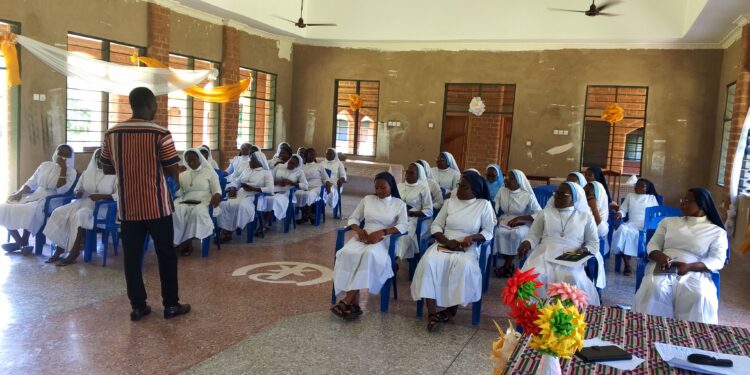A seminar on “Understanding Mental Health in Religious Life” was held for the Sisters of the Incarnate Word (SVI) on June 8, 2025, at their Novitiate House at Mantukwa in Ghana’s Sunyani Diocese.
The Seminar attended by 40 Sisters made up of, 28 professed and 12 under formation, was facilitated by Mr. Peter Kumi, a licensed Counselling Psychologist and Bono West and East and Ahafo Regional Manager of Catholic Schools.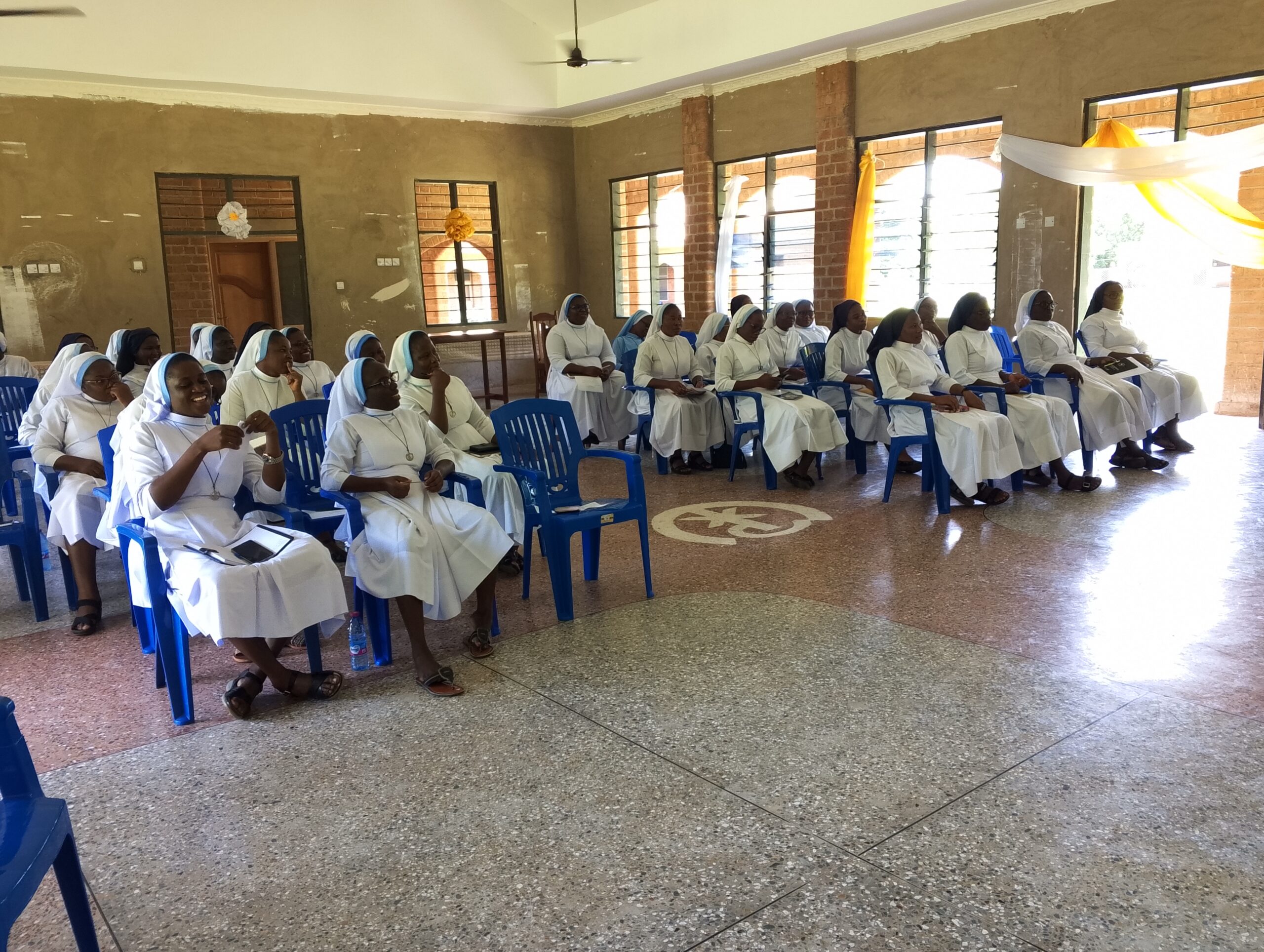
It was aimed to provide insights into mental well-being within the context of religious life.
In his presentation, Mr. Kumi defined mental health according to the World Health Organization (WHO) as “a state of well-being in which individuals realise their abilities, can cope with normal stresses, work productively, and contribute to their community.” 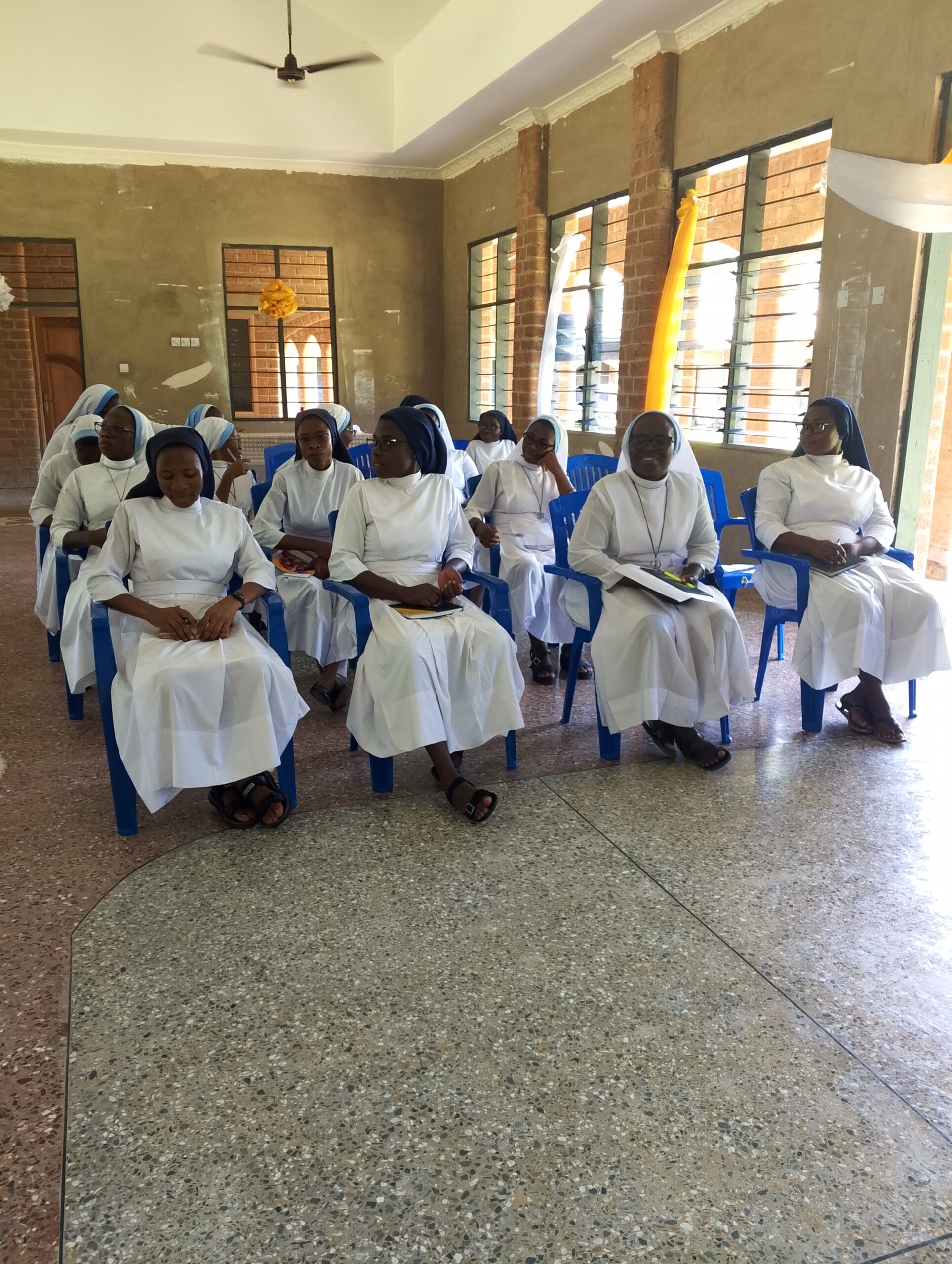
He emphasised that mental health encompassed emotional, psychological, and social well-being and is not merely the absence of mental illness.
Using the analogy of a water bottle representing the brain, he explained how it can become overwhelmed by unnecessary stimuli, leading to distress.
The facilitator delved into the unique challenges within religious life that could impact mental health including, Vows and Lifestyle Demands- specifically, celibacy, poverty, and obedience; high expectations that is pressure for spiritual maturity, isolation or loneliness:-the potential for feelings of solitude, pressure to Appear Strong: A reluctance to show vulnerability. Risk of Burnout, Depression, and Anxiety: Common mental health concerns. Spiritual Burnout or “Dark Night of the Soul”: A profound spiritual crisis.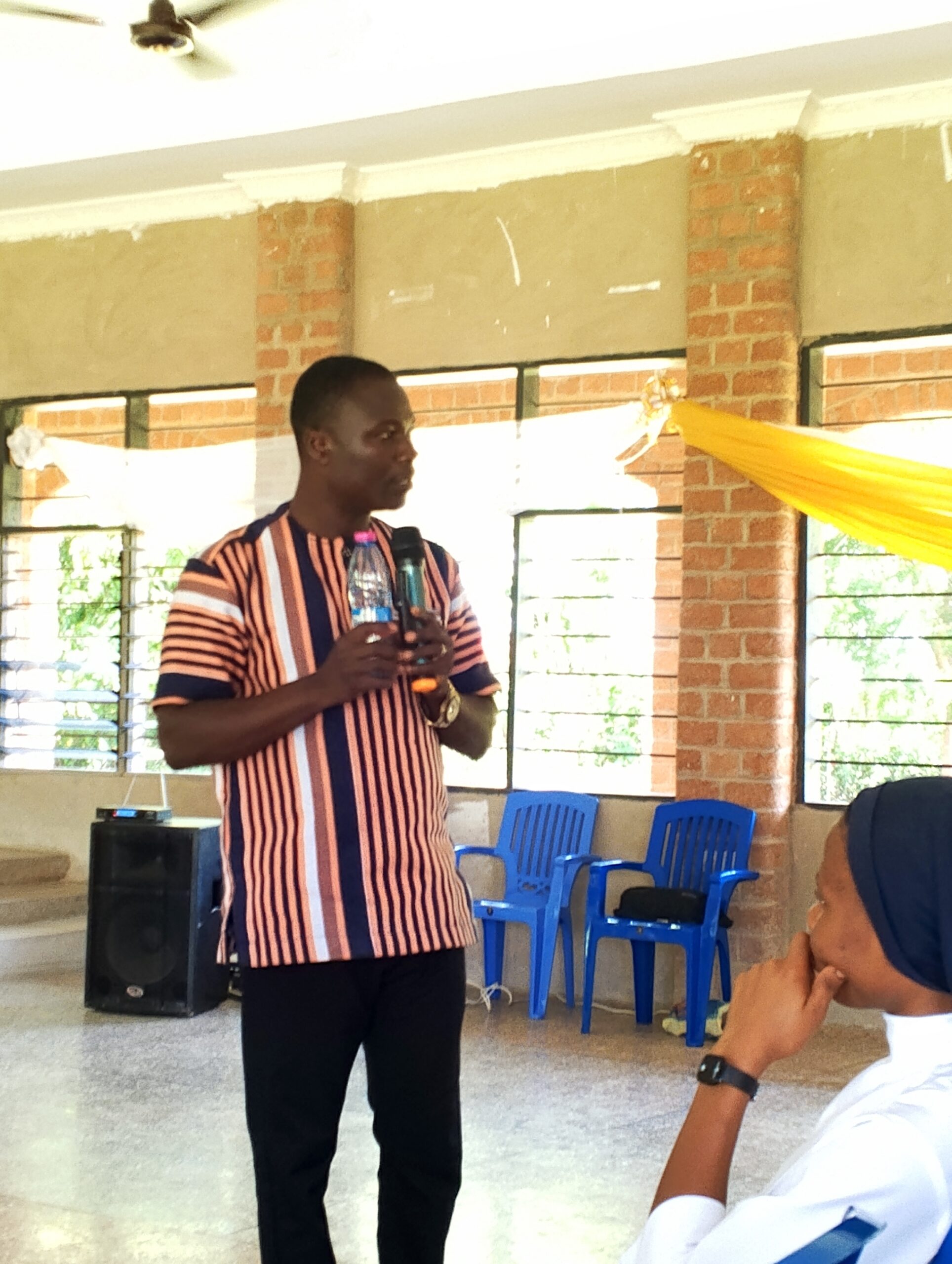
Mr. Kumi elaborated on the concept of the “Dark Night of the Soul,” a term coined by St. John of the Cross which he described as an intense period of inner struggle, emotional darkness, and spiritual dryness where an individual feels disconnected from their faith or abandoned by God.
He clarified that this is not merely sadness but a transformative spiritual crisis intended to purify the soul, deepen trust in God, and lead to a closer divine union through faith and surrender, rather than through feelings.
A significant portion of the seminar highlighted faith as a crucial source of strength in religious life as Mr. Kumi explained that faith can: provide community and support, offer a strong sense of purpose and identity, promote mental well-being through practices like prayer and meditation, serve as a protective factor against mental health challenges.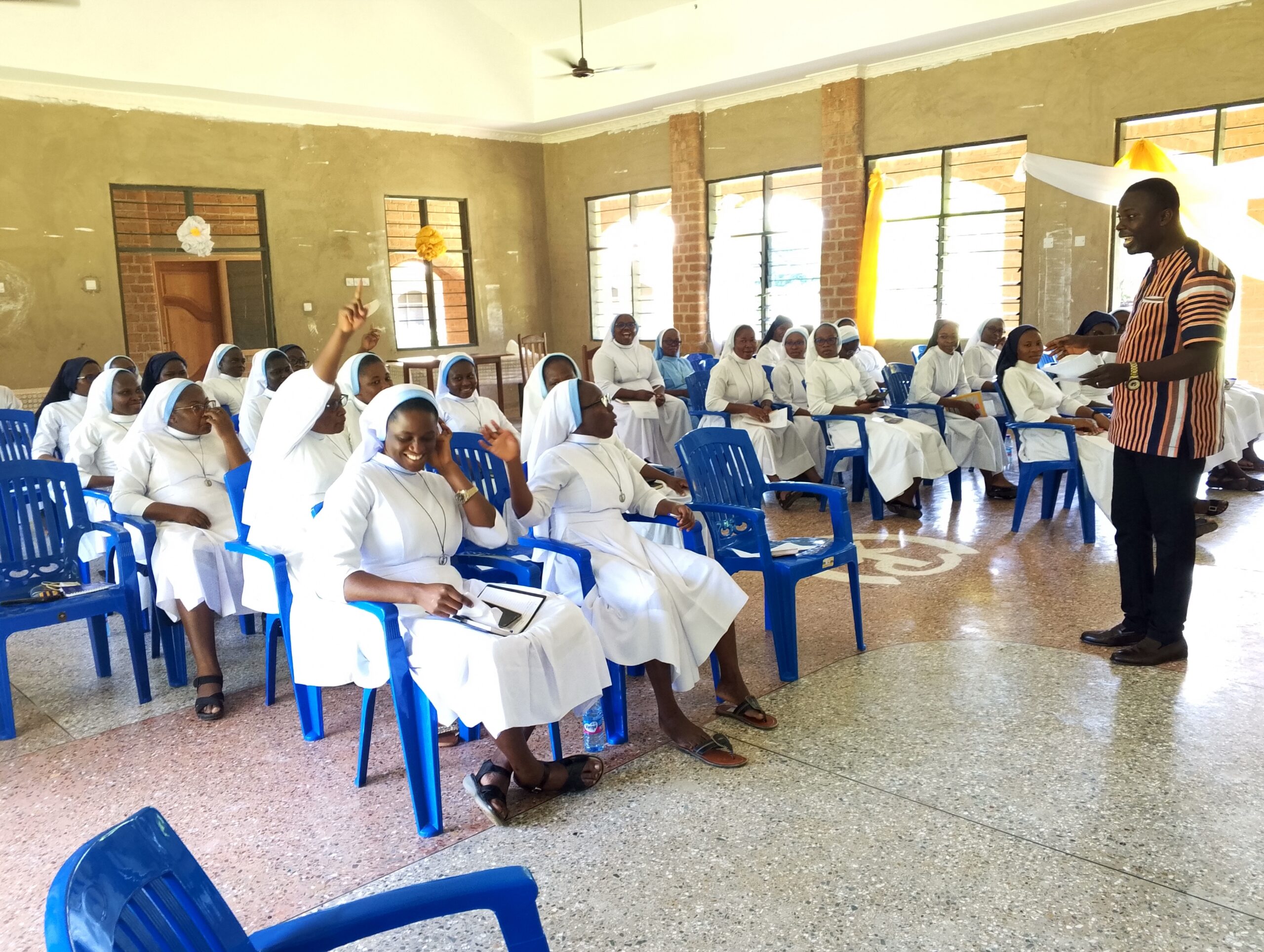
He also addressed common misconceptions about mental health within religious communities.
He noted that many people believed that sufficient faith negates mental health struggles, and that mental illness is a sign of spiritual weakness or sin, stressing that such attitudes discourage individuals from seeking help and stifle open dialogue.
He asserted that mental healthcare does not indicate a lack of faith but rather represents a holistic approach to caring for the mind, body, and spirit.
The facilitator also outlined red flags and signs of distress, including: persistent sadness, withdrawal from others, anxiety and burnout, Sudden changes in behavior or routine and loss of interest in spiritual practices.
Mr. Kumi concluded the seminar by emphasizing that embracing both faith and mental health is not contradictory but an act of wholeness.
He underscored that caring for one’s mental health is a form of stewardship and an act of honoring God’s creation.
He advised the Sisters to take good care of their mental health.
By, Sr. Rebecca Asante, SVI (Sister Communicator)






